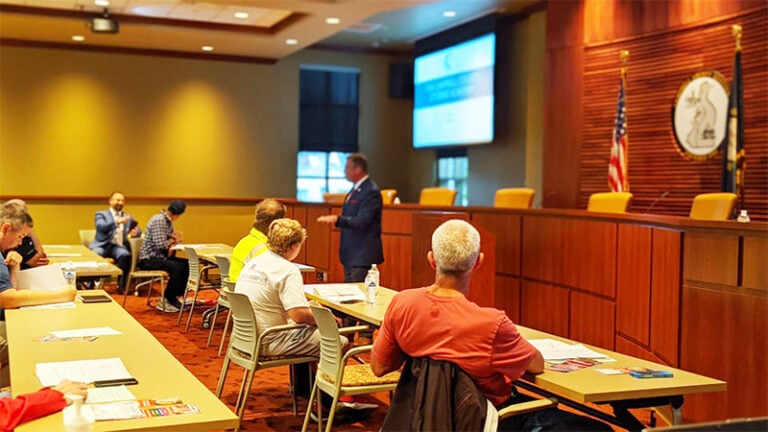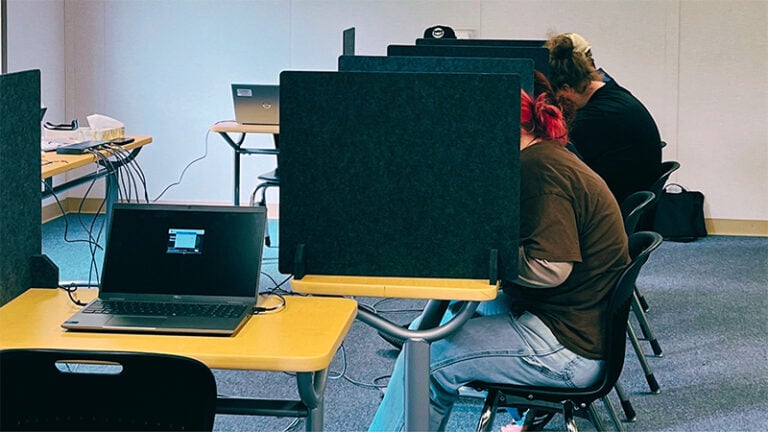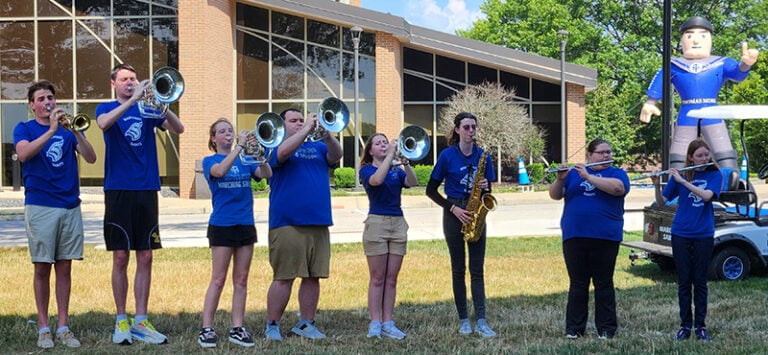Legislators returned to the capitol last week as the 2023 legislative interim kicked off and the pace picks up for preparations for next session. Fourteen committees and task force meetings took place, delving into a variety of issues ranging from lottery-funded educational scholarships to an update on the legislature’s work to expand broadband across the state.
Here is a brief summary of some of the interim joint committee (IJC) and task force meetings:
IJC on Agriculture: The June meeting agenda focused on Kentucky’s watershed dams. It has been decades since the nation invested heavily in water and soil conservation through dam projects across the nation, and many of these projects are now approaching the need for rehabilitation and structural repairs. Representatives from the U.S. Natural Resources Conservation District, the Kentucky Department for Natural Resources, and the Kentucky Energy and Environment Cabinet addressed concerns and shared relevant data with committee members. This included information on high priority projects, as well as how to access federal funding, and how the General Assembly can adequately supply local governments with the support necessary to rehabilitate these structures.

IJC on Appropriations and Revenue: Committee members were briefed by the Personnel Cabinet on their compensation and classification study. The committee will keep monitoring these discussions with an eye toward what commonsense solutions we may do next session. Additionally, members heard from the Department of Military Affairs. They discussed the state’s costs for emergency response services and responding to the natural disasters in Eastern Kentucky and Western Kentucky. To date, $273 million has been expended for such expenses, this is the largest amount in history. Eastern Kentucky is $260 million of the amount. The timeframe for flooding cleanup and revitalization costs was between July 28, 2022 to May 15, 2023.
IJC on Education: Members heard from the Kentucky Association of School Superintendents (KASS) regarding the Kentucky Education Reform Act (KERA). Efforts to modernize KERA have been disrupted by many factors, including federal policy, state assessments, and the pandemic. The superintendents group provided recommendations, such as studying how to incorporate post-secondary readiness indicators, consider how to fund a planning grant, and examine the state’s approach to funding. Next, members were given an overview of the Kentucky Department of Education (KDE) assessment and accountability requirements. Kentucky must meet requirements from the federal government through the Every Student Succeeds Act (ESSA) as well as requirements in state statute. Student proficiency in all but one subject (writing on demand) is at a six-year low. According to the KDE, they have still not fully implemented legislation passed in 2020 (SB 158) that would increase the quality of the assessment and accountability system for schools and strengthen support from the state to improve educational outcomes.
IJC on the Judiciary: Legislators discussed legislation filed during this year’s session that will likely be considered again in 2024. The first bill that would charge a person with homicide if they were found to have sold or distributed drugs to someone who died of an overdose. Next, they heard about exoneration compensation, which would allow for compensation for people wrongly accused and imprisoned for a crime they did not commit. The last measure would regulate a type of loan available to plaintiffs in civil suits provided in exchange for a portion of any recovery the plaintiff receives. These loans, referred to as non-recourse legal loans, are often used to help injured plaintiffs with living expenses when they are unable to work as a result an injury related to the lawsuit.
IJC on Natural Resources and Environment: Members heard testimony from representatives of Kentucky Power regarding efforts to lower utility rates. According to testimony, the company is working to identify ways to lower rates for consumers. Among them is the use of securitization, a financing process approved during the 2023 Regular Session that allows companies to borrow based on assets rather than require the use of rate increases.
IJC on Transportation: Transportation Cabinet (KYTC) officials led the agenda with a briefing on the status of major projects approved by the legislature. According to KYTC, 70% of work on the Mountain Parkway is either under construction or completed and construction connecting I-69 between Evansville, Indiana and Henderson, Kentucky is currently underway. The Brent Spence bridge project in Northern Kentucky is in the procurement process. In Eastern Kentucky, 76 bridges have either been replaced or repaired and more than 400,000 tons of debris have been removed in response to the floods of 2022. An update was also provided on the National Electric Vehicle Infrastructure Planning (NEVI) Program, a $5 billion federal project of which the state received $69.5 million. According to the presentation, charging stations that fully charge a vehicle in 30 minutes will be placed on state interstates and parkways. The federal funds will be used to engage the private sector.
Health and Human Services Task Force: Lawmakers received an update from the Cabinet for Health and Family Services on SB 48, legislation that reorganized the cabinet to help with the delivery of services and programs. They also heard about how the expiration of the Covid-19 federal public health emergency is expected to impact services and funding. According to officials, the biggest impact will be felt within the Department for Community-Based Services and Childcare.
Lottery Trust Fund Task Force: Members heard from the Kentucky Higher Education Assistance Authority (KHEAA) with an overview of the use of lottery funds for scholarships and grants available to Kentucky students pursuing higher education. Officials from KHEAA pointed out that while college tuition has greatly increased over the years, the base amount for the Kentucky Educational Excellence Scholarship (KEES) has not changed since its inception in 1998. KEES is based upon a student’s GPA; the scholarship increases as the student’s GPA does, and students can earn an additional $500 dollars as a part of their scholarship by scoring a 28 or higher on the ACT. They also informed task force members on the federal changes being made to the FAFSA that will, ultimately, make more students eligible for the Pell grant and state-funded grants.
While we begin these meetings to form the legislative agenda for 2024, I would like to hear from you regarding your interest in any of the issues before the Kentucky General Assembly. Feel free to reach out any time through the toll-free message line in Frankfort at 1-800-372-7181 or by email at Steve.Rawlings@lrc.ky.gov. For more information, please visit the legislature’s website at legislature.ky.gov.
Steve Rawlings is a state representative serving District 66 (part of Boone County.) He lives in Burlington.

















